Jehoshaphat Defeats the Porn Kings
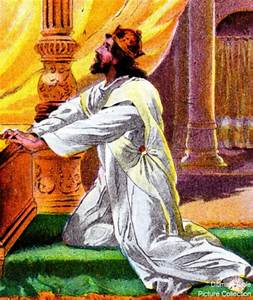
How does our title possibly fit any situation in the modern world?
King Jehoshaphat of Israel lived 2800 years ago and surely everything is different now?
Or is it?

Please Watch:
HIDDEN TEACHINGS of the Bible | Jehoshaphat Knew What Many Didn't Know

King Solomon, king of all Israel died about 922 BC at which time the nation
was divided into "Israel," (the Ten Northern Tribes with worship
centers at Dan and Bethel), and "Judah" (the tribes of Benjamin
and Judah, centering their worship at Jerusalem). The two halves of the
divided kingdom each had about 19 kings, but the Bible records nothing good
about the kings of Israel and the apostasy of the Northern tribes was so
rapid they were carried away by the Assyrians after only 200 years (in 722
BC). Several of the kings of Judah were, however, godly men and reformers
so that apostasy was temporarily reversed, and because temple worship as
ordained by God was more or less maintained in place, the southern kingdom
survived 336 years. They were overrun and carried captive by Nebuchadnezzar
in 586 BC.
Jehoshaphat, (His name means "Yahweh has judged") was the fourth
king of Judah, and son of Asa. His mother was Azubah the daughter of Shilhi.
He was thirty-five years of age at time of accession and reigned twenty-five
years, from about 873 to 849 BC. (Ref. 1) The Bible gives us a good deal
of information about this king. Beginning in I Kings 22:41 and in 2 Kings
3:4ff the narrative belongs mostly to the history of the northern kingdom.
The account of his life begins this way:
Jehoshaphat the son of Asa began to reign over Judah in the fourth year
of Ahab king of Israel. Jehoshaphat was thirty-five years old when he began
to reign, and he reigned twenty-five years in Jerusalem. His mother's name
was Azubah the daughter of Shilhi. He walked in all the way of Asa his father;
he did not turn aside from it, doing what was right in the sight of the
LORD; yet the high places were not taken away, and the people still sacrificed
and burned incense on the high places. Jehoshaphat also made peace with
the king of Israel. Now the rest of the acts of Jehoshaphat, and his might
that he showed, and how he warred, are they not written in the Book of the
Chronicles of the Kings of Judah? And the remnant of the male cult prostitutes
who remained in the days of his father Asa, he exterminated from the land.
There was no king in Edom; a deputy was king... (1 Kings 22:41-47)
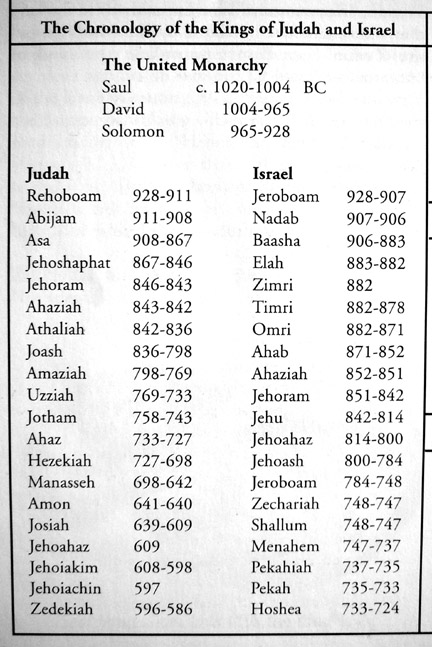 The reign of Jehoshaphat appears to have been one of vigorous spiritual
renewal. The king sought the favor of Yahweh every detail of his life (2
Chronicles 17:3f.). He saw that a nation's character is determined by the quality
of its religion. He made it his duty to purify the national worship. The
"sodomites"--the male cult prostitutes of Canaan worship, were
banished from the land (I Kings 22:46). The Asherim, (sacred Canaanite obscene
pillars) were taken out of Judah (2 Chronicles 17:b: 19:31), And "the people
from Beersheba to the hill country of Ephraim were brought back unto the
Lord, the God of their fathers." (19:4). (Ref. 2) Because of his zeal
for Yahweh, Jehoshaphat was rewarded by the Lord with power and "riches
and honor in abundance" (17:5).
The reign of Jehoshaphat appears to have been one of vigorous spiritual
renewal. The king sought the favor of Yahweh every detail of his life (2
Chronicles 17:3f.). He saw that a nation's character is determined by the quality
of its religion. He made it his duty to purify the national worship. The
"sodomites"--the male cult prostitutes of Canaan worship, were
banished from the land (I Kings 22:46). The Asherim, (sacred Canaanite obscene
pillars) were taken out of Judah (2 Chronicles 17:b: 19:31), And "the people
from Beersheba to the hill country of Ephraim were brought back unto the
Lord, the God of their fathers." (19:4). (Ref. 2) Because of his zeal
for Yahweh, Jehoshaphat was rewarded by the Lord with power and "riches
and honor in abundance" (17:5).
Jehoshaphat set out to correct the widespread Biblical illiteracy of
his day. He introduced a system of public instruction for the whole land
(2 Chronicles 17:7ff.), appointing a commission composed of princes, Levites and
priests, to travel from city to city instructing the people. He gave orders
that the teaching curriculum was to be based on "the book of the law
of the Lord" (17:7-9).
Next in importance to his system of public instruction was his provision
for the better administration of justice. He appointed judges to preside
over courts of common pleas which he established in all the fortified cities
of Judah. In addition to local
courts, two courts of appeal were instituted--an ecclesiastical and a civil
court were established at Jerusalem to be presided over by priests, Levites,
and leading nobles as judges. At the head of ecclesiastical court of appeal
was the high priest; a layman, "the ruler of the house of Judah,"
headed the court of appeal (2 Chronicles 19:4-11). He insisted that a judge was
to be in character like Yahweh, with whom there is "no iniquity...nor
respect of persons, nor taking bribes" (19:7).
According to 2 Chronicles I7:2 Jehoshaphat began his reign with defensive measures
against Israel. Furthermore, he built castles and store cities in the land
of Judah. "and he had many works," probably military supplies,
"in the cities of Judah" (17:13). He appears to have had a large
standing army including cavalry (I Kings 22:4; 2 Chronicles 17:14ff).
The godliness and security resulting from his reforms within Judah were
followed by respect and peace abroad. The Philistines and the Arabians brought
tribute (2 Chronicles 17:11). Edom had no king (I Kings 22:47), but a deputy instead
who was probably appointed by Jehoshaphat. This suggests that Jehoshaphat's
influence extended over the nations bordering on Judah to the south and
west. For the greater part of his reign Jehoshaphat secured the peace that
fostered the internal development of the kingdom (I Chronicles 17:10). In contrast
to the former kings of Judah. Jehoshaphat saw greater benefit in an alliance
with Israel than in civil war. Accordingly, the old feud between the two
kingdoms (I Kings 14:30: 15:6) was dropped, and Jehoshaphat made peace with
Israel (22:44). The political union was cemented by the marriage of his
son Jehoram to Athaliah, daughter of Ahab. (This marriage of course proved
to be a tragic mistake because Athaliah later became queen of Judah and
very nearly destroyed the royal family in the line of David and corrupted
the worship of Yahweh as thoroughly as she was able, 11:1ff). But the union
and cooperation of Israel and Judah gave them both the necessary strength
to defy Syria and to subjugate other neighboring states for a season.
Chronicles places emphasis upon the spiritual life of the nation and
events that are most noteworthy from God's point of view. The books of Kings
focus more on the facts of history as they happened. So we gain additional
insight in the life and reign of Jehoshaphat from the record in 2 Chronicles
which commences at chapter 17:
Jehoshaphat his [Asa's]
son reigned in his stead, and strengthened himself against Israel. He placed
forces in all the fortified cities of Judah, and set garrisons in the land
of Judah, and in the cities of Ephraim which Asa his father had taken.
The LORD was with Jehoshaphat, because he walked in the earlier ways of
his father; he did not seek the Baals, but sought the God of his father
and walked in his commandments, and not according to the ways of Israel.
Therefore the LORD established the kingdom in his hand; and all Judah brought
tribute to Jehoshaphat; and he had great riches and honor. His heart was
courageous in the ways of the LORD; and furthermore he took the high places
and the Asherim out of Judah. In the third year of his reign he sent his
princes, Ben-hail, Obadiah, Zechariah, Nethanel, and Micaiah, to teach
in the cities of Judah; and with them the Levites, Shemaiah, Nethaniah,
Zebadiah, Asahel, Shemiramoth, Jehonathan, Adonijah, Tobijah, and Tobadonijah;
and with these Levites, the priests Elishama and Jehoram.
And they taught in Judah, having the book of the law
of the LORD with them; they went about through all the cities of Judah
and taught among the people. And the fear of the LORD fell upon all the
kingdoms of the lands that were round about Judah, and they made no war
against Jehoshaphat. Some of the Philistines brought Jehoshaphat presents,
and silver for tribute; and the Arabs also brought him seven thousand seven
hundred rams and seven thousand seven hundred he-goats. And Jehoshaphat
grew steadily greater. He built in Judah fortresses and store-cities, and
he had great stores in the cities of Judah. He had soldiers, mighty men
of valor, in Jerusalem. This was the muster of them by fathers' houses:
Of Judah, the commanders of thousands: Adnah the commander, with three
hundred thousand mighty men of valor, and next to him Jehohanan the commander,
with two hundred and eighty thousand, and next to him Amasiah the son of
Zichri, a volunteer for the service of the LORD, with two hundred thousand
mighty men of valor. Of Benjamin: Eliada, a mighty man of valor, with two
hundred thousand men armed with bow and shield, and next to him Jehozabad
with a hundred and eighty thousand armed for war. These were in the service
of the king, besides those whom the king had placed in the fortified cities
throughout all Judah. Now Jehoshaphat had great riches and honor...
Jehoshaphat dwelt at Jerusalem; and he went out again
among the people, from Beersheba to the hill country of Ephraim, and brought
them back to the LORD, the God of their fathers. He appointed judges in
the land in all the fortified cities of Judah, city by city, and said to
the judges, "Consider what you do, for you judge not for man but for
the LORD; he is with you in giving judgment. Now then, let the fear of
the LORD be upon you; take heed what you do, for there is no perversion
of justice with the LORD our God, or partiality, or taking bribes."
Moreover in Jerusalem Jehoshaphat appointed certain Levites and priests
and heads of families of Israel, to give judgment for the LORD and to decide
disputed cases. They had their seat at Jerusalem. And he charged them:
"Thus you shall do in the fear of the LORD, in faithfulness, and with
your whole heart: whenever a case comes to you from your brethren who live
in their cities, concerning bloodshed, law or commandment, statutes or
ordinances, then you shall instruct them, that they may not incur guilt
before the LORD and wrath may not come upon you and your brethren. Thus
you shall do, and you will not incur guilt. And behold, Amariah the chief
priest is over you in all matters of the LORD; and Zebadiah the son of
Ishmael, the governor of the house of Judah, in all the king's matters;
and the Levites will serve you as officers. Deal courageously, and may
the LORD be with the upright!" (2 Chonicles 17:1-19:11)
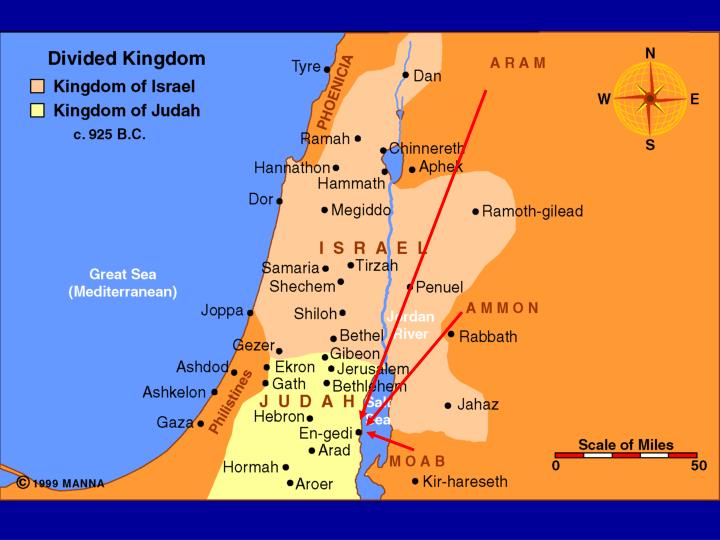
It is in Chronicles that we find the record of a most remarkable victory
Jehoshaphat gained over the Moabites and Ammonites.
After this the Moabites and Ammonites, and with them
some of the Me-unites, came against Jehoshaphat for battle. Some men came
and told Jehoshaphat, "A great multitude is coming against you from
Edom, from beyond the sea; and, behold, they are in Hazazon-tamar"
(that is, Engedi). Then Jehoshaphat feared, and set himself to seek the
LORD, and proclaimed a fast throughout all Judah.
And Judah assembled to seek help from the LORD; from
all the cities of Judah they came to seek the LORD. And Jehoshaphat stood
in the assembly of Judah and Jerusalem, in the house of the LORD, before
the new court, and said,
"O LORD, God of our fathers, art thou not God
in heaven? Dost thou not rule over all the kingdoms of the nations? In
thy hand are power and might, so that none is able to withstand thee. Didst
thou not, O our God, drive out the inhabitants of this land before thy
people Israel, and give it for ever to the descendants of Abraham thy friend?
And they have dwelt in it, and have built thee in it a sanctuary for thy
name, saying, `If evil comes upon us, the sword, judgment, or pestilence,
or famine, we will stand before this house, and before thee, for thy name
is in this house, and cry to thee in our affliction, and thou wilt hear
and save.' And now behold, the men of Ammon and Moab and Mount Seir, whom
thou wouldst not let Israel invade when they came from the land of Egypt,
and whom they avoided and did not destroy--behold, they reward us by coming
to drive us out of thy possession, which thou hast given us to inherit.
O our God, wilt thou not execute judgment upon them? For we are powerless
against this great multitude that is coming against us. We do not know
what to do, but our eyes are upon thee."
Meanwhile all the men of Judah stood before the LORD,
with their little ones, their wives, and their children.
And the Spirit of the LORD came upon Jahaziel the son
of Zechariah, son of Benaiah, son of Jeiel, son of Mattaniah, a Levite
of the sons of Asaph, in the midst of the assembly. And he said, "Hearken,
all Judah and inhabitants of Jerusalem, and King Jehoshaphat: Thus says
the LORD to you, `Fear not, and be not dismayed at this great multitude;
for the battle is not yours but God's. Tomorrow go down against them; behold,
they will come up by the ascent of Ziz; you will find them at the end of
the valley, east of the wilderness of Jeruel. You will not need to fight
in this battle; take your position, stand still, and see the victory of
the LORD on your behalf, O Judah and Jerusalem.' Fear not, and be not dismayed;
tomorrow go out against them, and the LORD will be with you."
Then Jehoshaphat bowed his head with his face to the
ground, and all Judah and the inhabitants of Jerusalem fell down before
the LORD, worshiping the LORD. And the Levites, of the Kohathites and
the Korahites, stood up to praise the LORD, the God of Israel, with a very
loud voice. And they rose early in the morning and went out into the wilderness
of Tekoa; and as they went out, Jehoshaphat stood and said, "Hear
me, Judah and inhabitants of Jerusalem! Believe in the LORD your God, and
you will be established; believe his prophets, and you will succeed."
And when he had taken counsel with the people, he appointed those who were
to sing to the LORD and praise him in holy array, as they went before the
army, and say, "Give thanks to the LORD, for his steadfast love endures
for ever."
And when they began to sing and praise, the LORD set
an ambush against the men of Ammon, Moab, and Mount Seir, who had come
against Judah, so that they were routed. For the men of Ammon and Moab
rose against the inhabitants of Mount Seir, destroying them utterly, and
when they had made an end of the inhabitants of Seir, they all helped to
destroy one another. When Judah came to the watchtower of the wilderness,
they looked toward the multitude; and behold, they were dead bodies lying
on the ground; none had escaped. When Jehoshaphat and his people came to
take the spoil from them, they found cattle in great numbers, goods, clothing,
and precious things, which they took for themselves until they could carry
no more. They were three days in taking the spoil, it was so much on the
fourth day they assembled in the Valley of Beracah, for there they blessed
the LORD; therefore the name of that place has been called the Valley of
Beracah to this day.
Then they returned, every man of Judah and Jerusalem,
and Jehoshaphat at their head, returning to Jerusalem with joy, for the
LORD had made them rejoice over their enemies. They came to Jerusalem,
with harps and lyres and trumpets, to the house of the LORD. And the fear
of God came on all the kingdoms of the countries when they heard that the
LORD had fought against the enemies of Israel. So the realm of Jehoshaphat
was quiet, for his God gave him rest round about.
Thus Jehoshaphat reigned
over Judah. He was thirty-five years old when he began to reign, and he
reigned twenty-five years in Jerusalem. His mother's name was Azubah the
daughter of Shilhi. He walked in the way of Asa his father and did not
turn aside from it; he did what was right in the sight of the LORD. The
high places, however, were not taken away; the people had not yet set their
hearts upon the God of their fathers... (2 Chronicles
20:1-33)
The battle was won by singing and praising God!
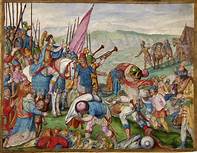
Jehoshaphat died at the age of sixty. Josephus says (Ant. ix.3.2
[44]) that he was buried in magnificent manner, for he had imitated the
actions of David. The kingdom was left to his son Jehoram.
The Application
How does this historical record of an ancient king fit the times in which
we live? Israel was called to know and follow the Lord their God. All other
nations in the world will ultimately be held to the same standard.
"God, who made the world and everything in it,
since He is Lord of heaven and earth, does not dwell in temples made with
hands. Nor is He worshiped with men's hands, as though He needed anything,
since He gives to all life, breath, and all things. And He has made from
one blood every nation of men to dwell on all the face of the earth, and
has determined their preappointed times and the boundaries of their dwellings,
so that they should seek the Lord, in the hope that they might grope for
Him and find Him, though He is not far from each one of us; for in Him
we live and move and have our being, as also some of your own poets have
said, `For we are also His offspring.' Therefore, since we are the offspring
of God, we ought not to think that the Divine Nature is like gold or silver
or stone, something shaped by art and man's devising. Truly, these times
of ignorance God overlooked, but now commands all men everywhere to repent,
"because He has appointed a day on which He will judge the world in
righteousness by the Man whom He has ordained. He has given assurance of
this to all by raising Him from the dead." (Acts
17:24-31)
The ancient Israelites had neither television nor x-rated movies. They
could not jet-set away to gamble or party in Las Vegas or Atlantic City.
Neither Playboy, Penthouse, nor Hustler arrived in the weekly mail. The Internet did not exist, nor the many porn sites now there. They
were not catered to by the soft-porn ads of modern advertising methods.
But they could visit temple prostitutes on the sly, they could slip away
from their homes and sleep with a neighbor to whom they were not married.
They could mistreat their wives and abuse their children. They could buy
special favors from corrupt temple priests, and when necessary could find
quiet, private ways to dispose of unwanted children, just as we do today.
God saw all this--and with a broken heart waited patiently for a few of
His people to call upon Him to change the status quo.
Idolatry is a matter of the attitudes of the heart, nor merely of the
outer form of religion. Ray Stedman says this:
Modern America is surely one of the most idolatrous countries the world
has ever seen. We are surrounded with idol worship.
I once heard of a Chinese man who visited here and was asked upon his
return to China whether Americans worshiped idols. "Yes, they do,"
he reported. "They have three of them. In the winter they worship
a fat man in a red suit. In the spring they worship a rabbit. And in the
fall they sacrifice a turkey!"
We chuckle at that, but these are not true idols. They are myths and
legends for the most part (except for the turkey, thank God!).
Many of us would label television as an idol. Too many spend far too
long glued to that staring eye which feeds all types of ideas and emotions
into our minds. But I do not think that television is an idol. It is, rather,
an altar upon which are spread offerings and sacrifices to the great god
of Self. Television panders to our lust for comfort and entertainment.
It lures us to think always of our own comfort, our pleasure, our fear
of boredom or desire to be either thrilled or scared by watching some spectacle
or event. It encourages us to focus upon ourselves.
The new book, The Habits of the Heart, by a group of contemporary
psychologists develops the thesis that television causes Americans to forget
how to serve. Perhaps in a Christian congregation this is not nearly as
evident as it is in the world at large, but we face it also in the body
of Christ. Jesus said that he came "not to be ministered unto, but
to minister and to give himself," {cf, Matt 20:28, Mark 10:45}. That
is where true richness and fulfillment come from. When we demand to be
ministered unto, to always have something titillating our senses, the end
is loneliness, emptiness, and ultimately despair. The proof of that is
visible everywhere today.
America worships not only Eros, the goddess of sex, but Baal, the erotic
deity associated with fertility rites. Baal worship in the ancient world
encouraged degenerate practices of the most licentious kind. It is the
reason for the loathsome practices evident in our country today. Baal worship
is manifest in the rise of homosexuality as an acceptable lifestyle. It
is behind the pornography that pervades almost every aspect of life in
our times. More than that, Americans are worshiping the god Molech, the
terrible furnace god into whose fiery mouth parents in ancient times threw
their own children, destroying them to relieve the guilt of their own consciences.
This is with us yet today, manifested in skyrocketing cases of child abuse
and child molestation. What will turn us from these degradations? (Stedman,
Ray C., Waiting
for the Second Coming.
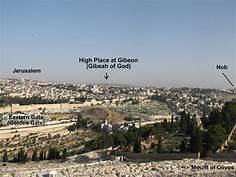 King Jehoshaphat saw the problem and did all that he could do on his
own initiative to correct the obvious and gross areas of open idolatry in
his time. Beyond a certain point he could do no more, nor did he have a
strong moral consensus from the people or even from his own family and the
religious establishment. What is most heartening about his successful overthrow
of the united forces of pagan idolatry encroaching upon God's people, was
that the victory given the king was 100% of God's doing. The Lord God Almighty
moved, acting in great grace, knowing full well the weakness of many of
his people--their inability to resist the powerful seductive forces loose
in that society in that time. "As a father pities [his] children, [So]
the LORD pities those who fear Him." (Psalm 103:13)
King Jehoshaphat saw the problem and did all that he could do on his
own initiative to correct the obvious and gross areas of open idolatry in
his time. Beyond a certain point he could do no more, nor did he have a
strong moral consensus from the people or even from his own family and the
religious establishment. What is most heartening about his successful overthrow
of the united forces of pagan idolatry encroaching upon God's people, was
that the victory given the king was 100% of God's doing. The Lord God Almighty
moved, acting in great grace, knowing full well the weakness of many of
his people--their inability to resist the powerful seductive forces loose
in that society in that time. "As a father pities [his] children, [So]
the LORD pities those who fear Him." (Psalm 103:13)
The moral behavior of the Ammonites, and Moabites, descended from Lot
by means of the incestuous relationships Lot's daughters had with their
father after the destruction of Sodom and Gomorrah is well documented--the
story begins in Genesis 19:30-38. Their gross forms of immorality are with
us to this day in our "modern, sophisticated" society. The Edomites,
sons of Esau, are pictures for us of the stubborn intransigence of the flesh
was always ready to oppose Israel, as the flesh today is in perpetual opposition
to the Spirit (Galatians 5:17).
Great victories always come from God's hand! We can thank God in advance
and praise Him ahead of time! With a simple, silent moving of His Spirit
he turned Israel's enemies against their own kind. God allowed them to destroy
one another while God's people watched in wonder and awe with thanksgiving.
God never wins His battles by strength of numbers. He is ready to move
and to act when a few of His people will trust Him, and in faith believing,
ask Him to roll back the great evils of an age. Can we not ask Him to do
the same for our generation?


Psalm 107
Oh, give thanks to the LORD, for [He is] good!
For His mercy [endures] forever.
Let the redeemed of the LORD say [so],
Whom He has redeemed from the hand of the enemy,
And gathered out of the lands, From the east
and from the west,
From the north and from the south.
They wandered in the wilderness in a desolate
way;
They found no city to dwell in.
Hungry and thirsty,
Their soul fainted in them.
Then they cried out to the LORD in their trouble,
[And] He delivered them out of their distresses.
And He led them forth by the right way,
That they might go to a city for a dwelling place.
Oh, that [men] would give thanks to the LORD
[for] His goodness,
And [for] His wonderful works to the children of men!
For He satisfies the longing soul,
And fills the hungry soul with goodness.
Those who sat in darkness and in the shadow
of death,
Bound in affliction and irons--
Because they rebelled against the words of God,
And despised the counsel of the Most High,
Therefore He brought down their heart with labor;
They fell down, and [there was] none to help.
Then they cried out to the LORD in their trouble,
[And] He saved them out of their distresses.
He brought them out of darkness and the shadow
of death,
And broke their chains in pieces.
Oh, that [men] would give thanks to the LORD
[for] His goodness,
And [for] His wonderful works to the children of men!
For He has broken the gates of bronze,
And cut the bars of iron in two.
Fools, because of their transgression,
And because of their iniquities, were afflicted.
Their soul abhorred all manner of food, And
they drew near to the gates of death.
Then they cried out to the LORD in their trouble,
[And] He saved them out of their distresses.
He sent His word and healed them,
And delivered [them] from their destructions.
Oh, that [men] would give thanks to the LORD
[for] His goodness,
And [for] His wonderful works to the children of men!
Let them sacrifice the sacrifices of thanksgiving,
And declare His works with rejoicing.
Those who go down to the sea in ships,
Who do business on great waters,
They see the works of the LORD,
And His wonders in the deep.
For He commands and raises the stormy wind,
Which lifts up the waves of the sea.
They mount up to the heavens, They go down again
to the depths;
Their soul melts because of trouble.
They reel to and fro, and stagger like a drunken
man,
And are at their wits' end.
Then they cry out to the LORD in their trouble,
And He brings them out of their distresses.
He calms the storm,
So that its waves are still.
Then they are glad because they are quiet;
So He guides them to their desired haven.
Oh, that [men] would give thanks to the LORD
[for] His goodness,
And [for] His wonderful works to the children of men!
Let them exalt Him also in the assembly of the
people,
And praise Him in the company of the elders.
He turns rivers into a wilderness,
And the watersprings into dry ground;
A fruitful land into barrenness,
For the wickedness of those who dwell in it.
He turns a wilderness into pools of water,
And dry land into watersprings.
There He makes the hungry dwell,
That they may establish a city for a dwelling place,
And sow fields and plant vineyards,
That they may yield a fruitful harvest.
He also blesses them, and they multiply greatly;
And He does not let their cattle decrease.
When they are diminished and brought low
Through oppression, affliction and sorrow,
He pours contempt on princes,
And causes them to wander in the wilderness [where there is] no way;
Yet He sets the poor on high, far from affliction,
And makes [their] families like a flocKings
The righteous see [it] and rejoice,
And all iniquity stops its mouth.
Whoever [is] wise will observe these [things],
And they will understand the lovingkindness of the LORD.

Canaanite Religion
On Worship (RCS)
Sex in Pagan Worship
Worship Resources
The Meaning of Sodom

Original References
1. International Standard Bible Encyclopedia, Wm.
Eerdmans 1982 ed. entry By S. Kings Mosiman, D. F. Payne.
2. Pagan religion seems silly to modern people until it is translated
into clearer terms. Behind the pillars, statutes, temples and imagery of
these ancient religious practices were hideous demons and unclean spirits
who had (then and now) the power to ruin and destroy ("...the sacrifices
of pagans are offered to demons, not to God, and I do not want you to be
participants with demons. You cannot drink the cup of the Lord and the cup
of demons too; you cannot have a part in both the Lord's table and the table
of demons." (1 Corinthians 10:20-21).
Statutes of the god Molech were made
of hollow metal so that a very hot fire could be built inside. After the
idol had been heated to a very high temperature babies and children were
thrown alive onto the outstretched arms of this god and so offered up to
a demon. Abortion of unwanted children today is not much different except
for change in the modus operandus of the demon. Rabbinical sources
tell us something about other Canaanite gods as well. To Baal-Peor, the
phallic god of the Moabites and Midianites, human sacrifices were offered,
and the priests who administered these sacrifices indulged in cannibalistic
orgies. One ancient source says the name Baal-Peor means "My Lord the
opener of the maiden's hymen." Thus the god claimed from the man the
sacrifice of circumcision or castration, and from the woman the sacrifice
of her maidenhead.
Male worshipers of Baal-Peor were said to "distend
their posteriors before him and offer to him the deposit." Female
followers of the god uncovered the mons veneris before it. In Syria
statues of Baal-Peor had a phallus protruding from his mouth according to
St. Jerome. "The constant tradition was that this idol was an obscene
deity, whose figure and manner of worship was filthy and abominable...
The
god was served by an obscene act, which required his worshipers to be uncovered
before him..." (Scott, George Riley, Phallic Worship: A History of Sex and Sexual Rituals, Random House, London, 1966). Sexual orgies
in our own time often have all these same elements of debasement built into
them.
The important lesson in this is that we become like the gods we serve! Serving
Jesus Christ the Lord with one's mind, heart, soul, body and total self
is the only path in life that leads to wholeness, well-being and ultimate
happiness. All other roads lead to destruction. If we are not serving the
true God, by default we serve idols--it is the way we have been created!
Jehoshaphat Annex
The Great Example of King Jehoshaphat (2002) by Lambert Dolphin
Jehoshaphat (2 Chronicles 17-20) by Dave Roper (2000)
A Day in the Life of Jehoshaphat (2 Chronicles 20:1-30) by Dave Roper (2000)
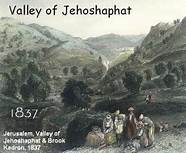
3:11 Come quickly,
all you nations all around,
gather yourselves there.
Bring down your warriors, O Lord.
3:12 Let the nations rouse themselves,
and come up to the valley of Jehoshaphat;
for there I will sit to judge
all the neighboring nations.
|


Lambert Dolphin's Place
Lambert's Personal Testimony
Archive for Newsletters
Library Annex (since 2018)
Music Library
 Email is Welcome: Lambert Dolphin
Email is Welcome: Lambert Dolphin
The Temple Mount in Jerusalem
(http://templemount.org)
For more information on the Temple Mount in Jerusalem, research concerning the location of the First and Second Temples and recent developments there see our separate web site. Maps and history of Jerusalem are brought up to date with MP3 lectures by leading scholars and research papers concerning the location of the Jewish Temples and plans for a Third Temple. Developed with the help of Mike Kollen, Jim Milligan and Norma Robertson.
Early History of the Temple Mount
Does God need a Temple?
|
 |
 February 3, 1998, February 19, 1998.
March 10, 2019. Proofed by AZL
February 3, 1998, February 19, 1998.
March 10, 2019. Proofed by AZL
December 2, 2019.
November 22, 2022. December 26, 2022.
September 18, 2023.




 King Jehoshaphat saw the problem and did all that he could do on his
own initiative to correct the obvious and gross areas of open idolatry in
his time. Beyond a certain point he could do no more, nor did he have a
strong moral consensus from the people or even from his own family and the
religious establishment. What is most heartening about his successful overthrow
of the united forces of pagan idolatry encroaching upon God's people, was
that the victory given the king was 100% of God's doing. The Lord God Almighty
moved, acting in great grace, knowing full well the weakness of many of
his people--their inability to resist the powerful seductive forces loose
in that society in that time. "As a father pities [his] children, [So]
the LORD pities those who fear Him." (Psalm 103:13)
King Jehoshaphat saw the problem and did all that he could do on his
own initiative to correct the obvious and gross areas of open idolatry in
his time. Beyond a certain point he could do no more, nor did he have a
strong moral consensus from the people or even from his own family and the
religious establishment. What is most heartening about his successful overthrow
of the united forces of pagan idolatry encroaching upon God's people, was
that the victory given the king was 100% of God's doing. The Lord God Almighty
moved, acting in great grace, knowing full well the weakness of many of
his people--their inability to resist the powerful seductive forces loose
in that society in that time. "As a father pities [his] children, [So]
the LORD pities those who fear Him." (Psalm 103:13)





 February 3, 1998, February 19, 1998.
March 10, 2019. Proofed by AZL
February 3, 1998, February 19, 1998.
March 10, 2019. Proofed by AZL